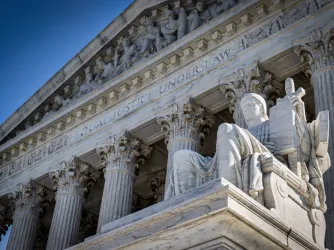Table of Contents
VICTORY: Court orders Texas university to provide records showing how admins censored then commandeered an independent student newspaper

(Billy Hathorn / Wikimedia Commons)
- FIRE’s lawsuit sought records about Tarleton State University’s investigation of a professor accused of “highly inappropriate behavior” and its administration’s takeover of a student newspaper.
- The financial cost of Tarleton’s unsuccessful defense may deter other public universities from obscuring access to public information.
STEPHENVILLE, Texas, June 12, 2023 — It’s better to know the truth later than never.
The Foundation for Individual Rights and Expression sued Tarleton State University in Feb. 2022 to obtain records that the university improperly withheld under Texas’s Public Information Act. On Friday, June 9, the court ordered Tarleton to produce the records.
The records will help reveal why Tarleton’s administration censored and seized editorial control over its student newspaper after pressuring student editors to remove articles about a former professor’s inappropriate behavior toward female students.
“We’re glad the court agreed to shine a light on Tarleton’s slippery behavior,” said FIRE attorney Gabe Walters. “The university should have done the right thing years ago, but the truth has prevailed.”
Judge Jason Cashon of Texas’ 266th Judicial District Court ordered Tarleton to produce the records within 21 days of Friday’s ruling. The court’s decision affirms that universities cannot hide public records about administrative decisions and faculty misconduct behind irrelevant exceptions to the Texas Public Records Act’s presumption of transparency.
Tarleton quietly paid professor Michael Landis more than $61,000 in September 2018 to leave the university after an investigation found that he acted inappropriately toward female students. Three years later, Landis threatened to sue an independent student newspaper, the Texan News Service, for defamation over stories it published at the time about his misconduct and departure.
Landis’ threat to sue was toothless. Any defamation suit would have been too late under the statute of limitations, and the student newspaper’s reporting was accurate and truthful.
But that did not stop Tarleton administrators from pressuring students to take down the articles. After FIRE wrote the university in August 2021 to defend the student publication, Tarleton falsely claimed that TNS was never independent from the administration — contrary to TNS’s former policy handbook and history.
Provost Karen Murray also wrote in a Sept. 30 letter to faculty that it is “imperative that the TNS operate only as an instructional laboratory for students and interns” and not as an editorially independent paper.
FIRE learned from a faculty member that classifying TNS as an “instructional laboratory” would give TNS’ adviser final editorial discretion over what the paper does and doesn’t publish. While a faculty-edited publication isn’t necessarily a bad thing, taking over a formerly student-run publication certainly is. In redefining TNS’ identity, the administration essentially stripped the publication of its editorial independence — all so the university could try to cover up an embarrassing situation.
Alarmed by Tarleton’s blatant censorship, FIRE lodged several public-records requests with the university, seeking information on efforts to censor TNS and on Landis’ threat of a lawsuit. Tarleton provided some records in response, but withheld others, claiming that the withheld information is confidential under the Family Educational Rights and Privacy Act.
The court disagreed with Tarleton, affirming FIRE’s claim that universities cannot invoke exceptions meant to protect student privacy as a guise to withhold information related to the administration. Judge Cashon ordered Tarleton to produce the documents and to redact any information that identifies students.
“Tarleton State covered up Landis’ inappropriate behavior by demanding TNS remove its reporting, and then covered up the cover up by withholding public records,” said FIRE staff attorney Kelley Bregenzer. “The court’s ruling reminds Tarleton that public information belongs to the people, and not the state.”
Judge Cashon also ordered Tarleton to pay FIRE’s attorneys’ fees and litigation costs. The court will hold an evidentiary hearing to decide exactly how much the university must pay. The monetary cost of Tarleton’s unsuccessful defense will hopefully deter other public universities from obscuring access to public information.
The Foundation for Individual Rights and Expression (FIRE) is a nonpartisan, nonprofit organization dedicated to defending and sustaining the individual rights of all Americans to free speech and free thought — the most essential qualities of liberty. FIRE recognizes that colleges and universities play a vital role in preserving free thought within a free society. To this end, we place a special emphasis on defending the individual rights of students and faculty members on our nation’s campuses, including freedom of speech, freedom of association, due process, legal equality, religious liberty, and sanctity of conscience.
CONTACT
Katie Kortepeter, Communications Campaign Manager, FIRE: 215-717-3473; media@thefire.org
Recent Articles
Get the latest free speech news and analysis from FIRE.

The federal charges against Don Lemon raise serious concerns for press freedom

The American people fact-checked their government

California prohibits its teachers from talking about a student's gender identity to their parents. That raises First Amendment concerns.


